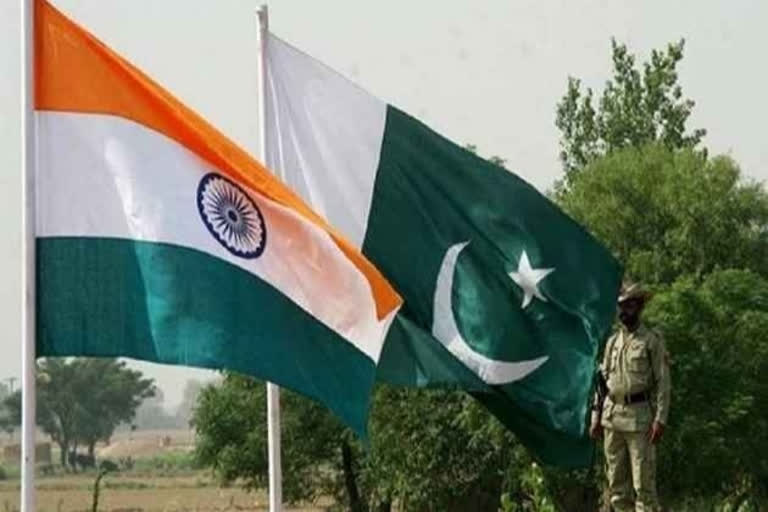New Delhi: The two-day talks between India and Pakistan on the Indus Water treaty are currently underway in New Delhi. A five-member delegation from Pakistan carefully chosen by newly-appointed Pakistan PM Shehbaz Sharif arrived in India on Sunday for the 118th bilateral talks on the Indus water treaty.
The high-stakes meeting is likely to focus on three key projects concerning both countries. The Pakistan delegation led by the head of the Pakistan delegation and Commissioner of Indus Waters, Syed Mehr Ali Shah also includes the director-general met office, and representatives from the irrigation department, the foreign office and NESPAK (National Engineering Services Pakistan). While the Indian side is led by India’s Indus Water Commissioner AK Pal.
The Pakistan delegation’s visit comes after the Indian delegation visited Islamabad for the previous Indus treaty talks in March this year.
Issues like advanced flood information and the construction of hydropower projects by India on the west-flowing rivers are likely to be the key points of discussion for both sides. The annual report of the Permanent Commission of Indus Water will also be finalized during the talks today.
Also Read: India captures only 8% of 4K billion cubic meters of rain
Pakistan’s objections to Indian hydroelectric projects including Pakal Dul (1,000 MW), Lower Kalnai (48 MW) and Kiru (624 MW) in the Chenab basin and a few small hydroelectric projects in Ladakh are also expected to be discussed in today’s talk.
Under the provisions of the Indus Waters Treaty, signed between India and Pakistan in 1960, the two Commissioners are required to meet at least once every year, alternately in India and Pakistan.
The 116th meeting of the India-Pakistan Permanent Indus Commission was held in New Delhi on March 23-24, 2021, while the 117th Meeting of the Permanent Indus Commission (PIC) comprising of Indus Commissioners of India and Pakistan was held on March 1-3, 2022 in Islamabad.
Earlier, ETV Bharat reported on the 116th meeting of the India-Pakistan Permanent Indus Commission last year. At that time, the Ministry of External Affairs said that the discussions continued on the designs of two Indian projects, namely, Pakal Dul (1000 MW) and Lower Kalnai (48 MW). Indian side maintained that these projects are fully compliant with the provisions of the Treaty and provided technical data in support of its position.
Pakistan side requested India for sharing information on the design of other Indian hydropower projects being planned to be developed. Indian side assured that the information will be supplied as and when required to be supplied under the provisions of the Treaty, MEA had said.
What is the Indus Waters Treaty?
Indus Waters Treaty is a water-distribution treaty signed between India and Pakistan on September 19, 1960, in Karachi by former Indian Prime Minister Late Jawaharlal Nehru and Pakistan President Ayub Khan.
The Treaty gives control over the waters of the three eastern rivers-the Beas, Ravi and Sutlej with a mean annual flow of 33 million acre-feet (MAF) — to India, while control over the waters of the three "western rivers" — the Indus, Chenab and Jhelum with a mean annual flow of 80 MAF to Pakistan.
Further, India is under an obligation to let flow all the waters of the Western rivers - Indus, Jhelum, and Chenab with an average annual flow of around 135 MAF and are not permitted any interference with these waters, except for the domestic and non-consumptive use as provided in the Treaty. New Delhi has also been given the unrestricted right to generate hydroelectricity on the Western rivers subject to specific criteria for design and operation.
It is pertinent to note that this is the second such visit by the Pakistan delegation to Delhi for talks. Earlier this month, the Pakistani delegation visited India for SCO Rats or regional anti-terror body meet.



